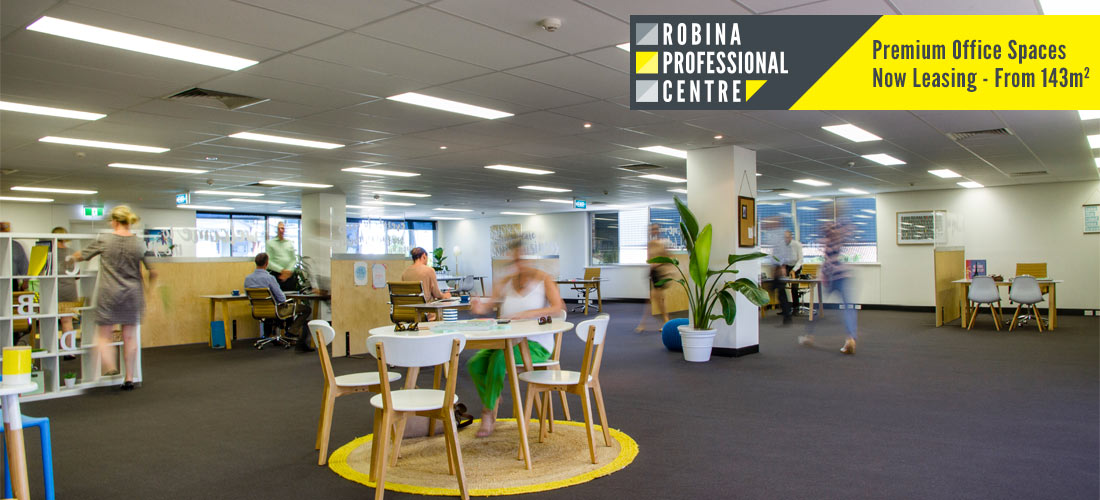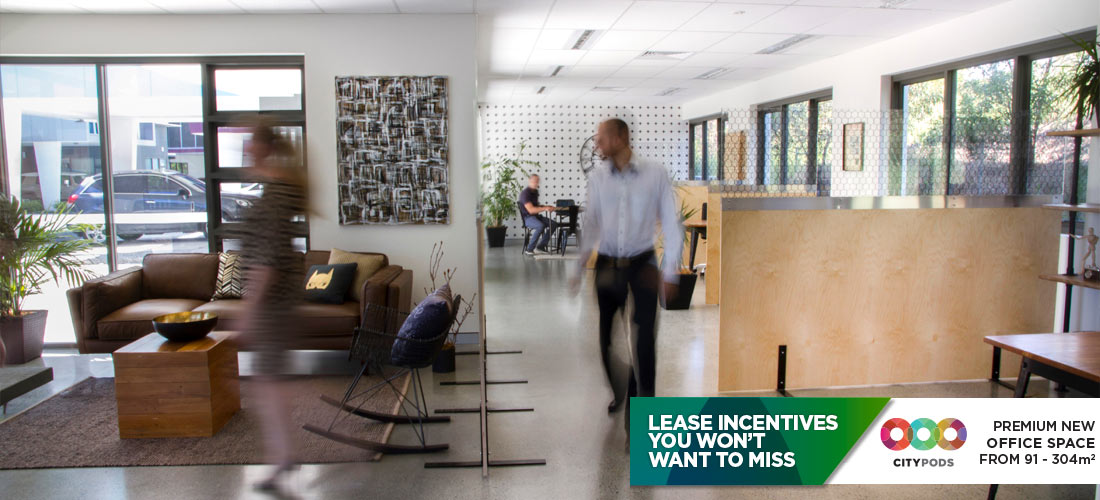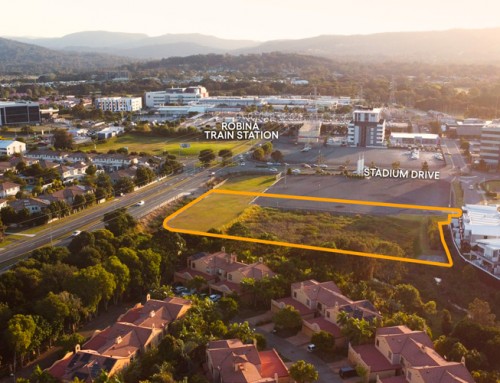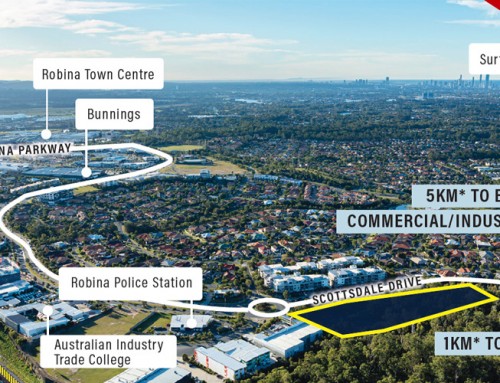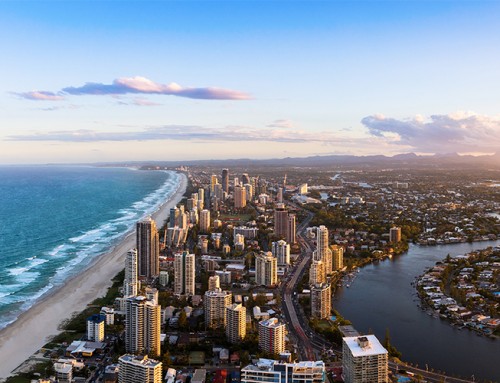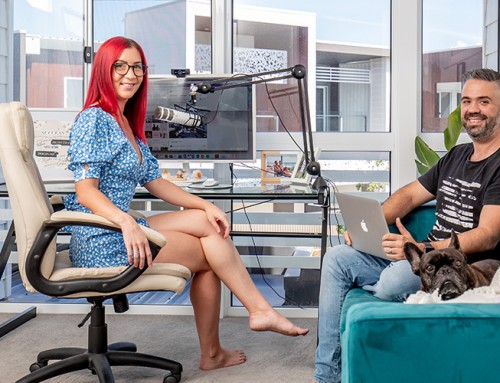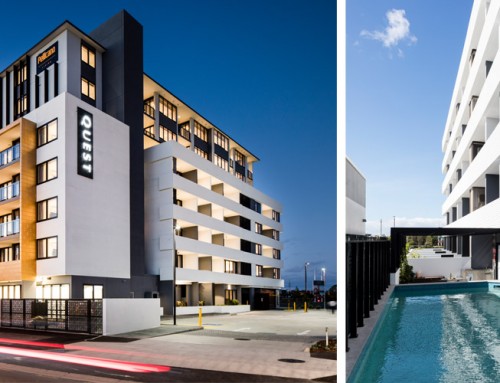Choosing the right office space can make or break your business. The most affordable office space won’t do you any favours if there’s a lack of exposure, quality signage opportunities, parking or connection to services such as internet – or if you’re next to a noisy or dusty industrial complex. With many years in the business of helping people choose office and retail spaces to suit their unique business needs, Robina Marketing Australia’s Commercial Sales and Leasing Manager, Marcus Weld has given us the below tips to help you find the right office for your business. These tips are especially important if you are just starting up in business, or you are making the leap from a home office to your own headquarters.
1. Access and Transport
Marcus says that one of the most important aspects of selecting the ideal new business address is to first consider your needs in regards to the location of the office.
- How easy is it for staff and customers to commute to?
- How much parking is available, including dedicated staff car spaces and un-allocated visitor spaces? Ample parking is a vital feature for both customers and staff
- The ability to commute via public transport such as buses and trains, is advantageous, particularly for education businesses
- Easy and direct access to the closest airport is also a key consideration, especially if you deal with delegates from interstate or overseas
- Ask about drive times – the distance point to point may not look far, but if access routes get highly congested at particular times of day, the negatives may outweigh the benefits if your clients or staff are stuck in traffic
- Is it possible for staff to easily cycle or walk to work (shower facilities are a bonus)?
2. Amenity
Consider the amenities nearby. Does the area suit your customers or business? Can staff buy their lunch somewhere within walking distance, and eat in a relaxing setting with fresh air before returning to work revitalised? Are there banks and a post office in the area, or other consultants you regularly deal with, such as your accountant? A work environment catering to your staff’s needs will go a long way in keeping them working for your business instead of looking for something more convenient, so consider basing yourself near schools, medical services and other conveniences such as supermarkets. Additionally, a business placed in an area with a range of complementary businesses can see additional foot traffic from the area. Specialist medical services can benefit from being placed close to a hospital.
Amenity not only refers to the facilities in the surrounding area, but also within the property itself – look for things like openable windows, natural light, landscaping, and other features which give a property that ‘feel good’ vibe. Modern office space should include high-speed fibre optic internet connectivity – make sure you ask what internet supply options are available and consider the connection costs.
3. Signage
Inspect to see if the property has adequate signage to be easily spotted by customers, whether by foot or by car. This includes pylon, on-building and even office door signage. If you’re in retail you’ll want high exposure shopfront with plenty of window signage opportunities. If your business requires it, make sure to check if there is room for a staffed reception, with suitable signage. Find out how much exposure signage receives as this will be a large source of potential customers especially for certain types of business – you can ask your agent for recent traffic count information if it is to hand.
Check your available position on any pylon signage and that the pylon is maintained and in good condition as this is often the first impression customers will remember. It’s also a good time to find out if there will be any competitors in the building which could negatively impact your business.
4. The Space
The size of office you require will vary depending on your ultimate use. A call centre will require less space per worker than say a design studio with large presentation rooms etc. Generally as a rule of thumb in an office, an allowance of 8-15 square metres of space per person is a good guide. The Building Code of Australia requires 10 square metres per person, however this can include halls, kitchens, meeting rooms etc.
Mr Weld says that offices in Gold Coast City can range, “anywhere from around 60 square metres right up to full floors of 1,000 square metres or more”.
Once you’ve worked out how much space you need, also consider if you’re planning to expand in the future, make sure adequate extra room is already factored into the size to prevent the need for an expensive relocation. If there is a fitout in place already this can save costs. Does the layout work for your business? Will it fit your business culture? How much can the space be modified and are there enough power outlets, air conditioning units and windows to adequately service your staff and clients? Fitout of a space can be expensive, so ask your agent whether a fitout contribution is being offered by the landlord. Typically a business lease will include a ‘make good’ clause, so keep this in mind when choosing your space.
5. Terms of lease
Now that you’ve found the perfect new address for your startup or the next step up for your growing business, you need to make sure you understand the lingo we agents speak to make sure you secure the best deal to suit your needs. Before you get too far into negotiations, you need decide on your term requirements (how long you’ll stay in the one space) and your budget.
Firstly, ask your agent is the rent gross or net, is it quoted per square metre per annum or per calendar month, or is it an annual rate? Of course, they should also be letting you know whether it is inclusive or exclusive of GST. Don’t be afraid to ask the questions now, it may save you in the long term.
What is the difference between gross and net rent?
Marcus explains, “most rents are quoted as net – this simply means it’s the base rental that is payable, and any outgoings, or other expenses are additional. This can include body corporate fees, rates, carparking or other costs, so make sure you know what these costs are going to be before you sign anything. Gross rent means that all of these expenses are already included (however GST may not be, so make sure you check).”
During the negotiation process, you may be offered incentives – if not, it doesn’t hurt to ask. This may be in the form of a rent-free period or a fitout contribution.
“Typically speaking,” Mr Weld informed us, “the longer the term committed to, the greater the incentive will be.”
We asked what a typical lease term would be for Gold Coast businesses and Marcus advised that “most tenants take terms of 5 + 5 years, with some choosing to commit for 3 + 3 years”.
This means the tenant signs a lease for an initial term of 3 years plus a 3 year option – simply put, the option just means that as the current tenant, they have the first right to take up the next period before it is offered back onto the market.
The final word
Marcus’s final word of advice?
“Choosing the right space to suit your business is important. Make sure you are in a growing location, with easy and direct access and excellent staff amenity. Don’t be afraid to ask your agent questions, do your homework on the total (gross) cost, so you’re comparing apples with apples, and make sure to inspect the building and the amenity of the surrounding area thoroughly before making a decision”.
Marcus Weld has over 20 years experience in commercial sales and leasing, and is currently leasing premium, new commercial properties in CityPods, Robina Professional Centre and The Base in CBDRobina.
Contact Marcus now for more information on leasing availability in these properties.

